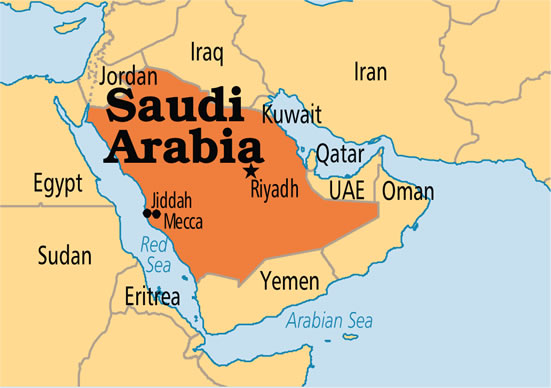
“Of course, we are ready for all possibilities,” Saudi Arabian Football Federation president Yasser al-Misehal said late on Tuesday at the Asian Football Confederation awards in Doha.
Saudi Arabia’s successful bid, just 27 days after announcing it, comes less than a year after neighbouring Qatar held the first winter World Cup, a decision that forced a pause to league competitions in Europe.
Summers in the desert kingdom can touch 50 degrees Celsius (122 Fahrenheit), temperatures that would be considered dangerous for football and likely too hot for fans to be outside.
“Today there are many new technologies that help you with cooling or adding air conditioners in stadiums, in addition to the fact that there are many cities in the kingdom that enjoy a very wonderful atmosphere in the summer,” Misehal said.
Misehal also indicated that Saudi Arabia intends to push ahead and host the tournament alone, without asking its neighbours to hold any games.
The world’s biggest oil exporter would then become the first country to host the newly expanded, 48-team World Cup alone, after the United States, Canada and Mexico hold it in 2026 followed by Spain, Portugal and Morocco in 2030.
“Saudi Arabia will submit a separate bid,” Misehal said, when asked if another country would host any matches.
– Extreme heat –
Like the rest of the Gulf countries, most cities in Saudi Arabia experience extreme heat in the summer, with temperatures ranging between 40-50 Celsius.
But some cities enjoy temperate weather in the summer, including Abha, Taif and Al-Baha, which hosted the Arab Club Champions Cup in July and August.
However, none of those cities has international-level stadiums, and the bigger Saudi venues are clustered in the major cities of Riyadh and Jeddah.
Saudi Arabia, which has invested heavily in football as well as Formula One and golf, is set to take over from the unprecedented tri-continental line-up for the 2030 event, which includes three matches in South America.
At this point, only “expressions of interest” have been submitted, although bidding is closed. After the full bids for 2030 and 2034 are handed over, they will be evaluated by FIFA and put to a vote at two separate congress meetings at the end of next year.
But the absence of any competition leaves little room for suspense, while also raising numerous questions about the environmental impact of the 2030 event and the compatibility of the 2034 tournament with FIFA’s human rights commitments.
FIFA president Gianni Infantino has already confirmed the 2030 and 2034 hosts in a post on Instagram, adding that “the bidding processes were approved by consensus via the FIFA Council”.
AFP





